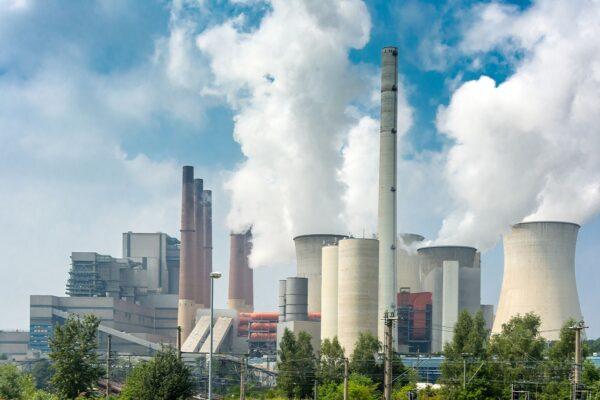Water is an essential resource for everyday life. The need for adequate water availability needs to be supported by sustainable infrastructure, especially in urban areas. Sustainable water management in growing cities is essential to ensure a resilient and healthy urban environment.
Read other articles : How Business Contribute to SDG 13: Climate Action
Effective urban water management addresses challenges such as water scarcity, pollution, and flooding, while promoting efficient use, equitable distribution, and environmental conservation. To address these challenges, cities need innovative and sustainable solutions that combine technological advances, community engagement, and nature-based strategies. Here are some key approaches:
Table of Contents
Toggle1. Water Recycling and Reuse
One of the ways to manage water in urban areas is through a water recycling system. Through this system, wastewater is treated to make it suitable for non-potable uses such as irrigation, industrial processes, and toilet flushing. Advanced technologies, such as membrane filtration and reverse osmosis, allow for higher quality recycled water, potentially suitable for drinking. Some developed countries, through the water initiative, have successfully implemented large-scale water recycling programs, significantly reducing dependence on external water sources.
2. Rainwater Harvesting
Another method that can be done to manage water in urban areas is by using the rainwater harvesting method. Rainwater capture and storage can complement the city’s water supply, especially in areas with seasonal rainfall. Rooftop rainwater harvesting systems are cost-effective and relatively easy to implement in urban environments. In addition, large-scale rainwater harvesting through retention basins and urban wetlands can reduce flooding and recharge groundwater.
3. Green Infrastructure
Growing green infrastructure is another solution to manage the water resources in cities. The green infrastructure that incorporates natural systems can be done through ‘green roofs’ which have vegetative layers on building rooftops. These vegetative layers then absorb rainwater, reduce heat, and improve air quality. Another green infrastructure is urban forests and parks. This infrastructure provides shade, absorbs rainwater, and reduces the urban heat island effect.
4. Smart Water Management

Smart technologies, such as Internet of Things (IoT) devices and data analytics, enable efficient water management. One of the IoT devices is smart meters, this device can monitor water usage in real time, helping utilities identify leaks and consumers manage consumption. Additionally, predictive models using artificial intelligence can optimize water distribution, detect pipe failures, and plan for extreme weather events.
5. Renewable Energy for Desalination
To manage the water, urban areas can also utilize renewable energy sources, like solar or wind power, to drive desalination plants in coastal cities. This provides a sustainable way to convert seawater into freshwater without heavily relying on fossil fuels. By integrating energy-efficient technologies and reducing carbon emissions, this approach addresses water scarcity while minimizing environmental impact. Additionally, renewable-powered desalination systems can be scaled to meet the specific needs of urban communities, ensuring a reliable water supply.
Furthermore, industry also plays a vital role in supporting the sustainable water solution in cities by not contributing to the water pollution. In this casse, Satuplatform.com is now available to support the environmental initiatives. As an all-in-one solution, Satuplatform.com provides various services and consultations for companies. Let’s try the FREE DEMO now!
Similar Article
Pemanfaatan AI dalam Upaya Pelestarian Lingkungan
Tidak dapat dipungkiri bahwa teknologi kecerdasan buatan atau Artficial Intelligence (AI) telah mengalami kemajuan yang sangat pesat dan menjadi bagian…
Mengenal Agbogbloshie ‘Tempat Penampungan’ Sampah Elektronik Dunia
Pernahkah kamu mendengar tentang tempat pembuangan sampah Agbogbloshie? Tempat ini pernah menjadi salah satu tempat pembuangan sampah terbesar di dunia…
Air Minum Kemasan Plastik Dilarang di Bali, Apa yang Terjadi?
Pemerintah Provinsi Bali baru saja melakukan langkah yang besar dalam upaya menjaga kelestarian lingkungan, yakni dengan melakukan pelarangan penjualan air…
Masa Depan Bisnis Adalah Bertanggung Jawab, Benarkah?
Sustainability atau Keberlanjutan bukan hanya sekadar tren musiman di era sekarang ini, melainkan telah menjadi suatu kewajiban yang dapat mendorong…
Berbagai Inovasi dalam Pengelolaan Sampah yang Bisa Dimanfaatkan
Indonesia bisa dibilang masih sangat memerlukan berbagai inovasi dan kemajuan dalam kegiatan pengelolaan sampah untuk membantu sampah ditangani dengan cara…
Indonesia Siap Pensiunkan Dini PLTU Batu Bara
Pemerintah Indonesia bersiap untuk melakukan langkah besar dalam upaya mencapai netralitas karbon atau Carbon Neutral pada 2060 dengan menerapkan pensiun…







